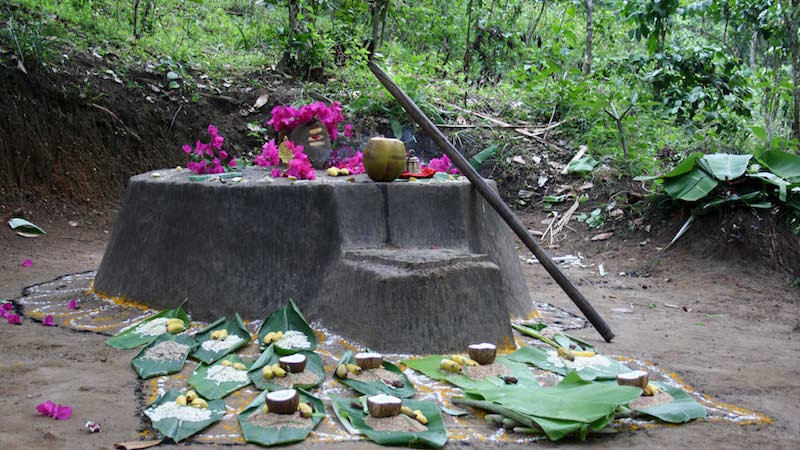
BY Bamidele Oni
The relationship between humans and their immediate environment is much more complex than we have always thought.
This complexity is well defined in the relationship between biological and cultural diversity which has been found to be more direct, and that each influences the other to an extent. In a more explicit way, bio-cultural adaptability influences homogeneity, and which consequently results in habitat isolation for the reason of adaptive modification.
The introduction of bicultural ethics is meant to change the narrative of ecological relationship from the predominantly mono-system status into the new possibility of recognizing the place of other pre-existing systems operating within an immediate environment and without necessarily changing the local setting that may exist.
This is a new school of thought termed bio-co-existence, which I personally find intriguing.
Biocultural conservation has a lot to offer with regards to the prevailing environmental problems, most especially, climate change. The school of thought is such that the factors influencing ecological problems could be well managed by identifying with different localized patterns of biological and cultural influences that have overtime influenced functionality within various locations on the planet. This will give a depth of understanding that would help influence the identification of solutions and adaptive modifications within the various homogenized regions of the world.
This is an interesting perspective in addressing ecological problems as it reflects a social content that seem not to have been put into global consideration overtime, and which is that, habitat, co-habitants and habits can never exist in isolation of each other as they all influence each other.
The non-recognition of primary biological diversity of some regions of the world has led to a total change in what the landscapes might have looked like in the past. That on its own is a big alteration which accordingly will give rise to further problems which erodes the cultural normalcy and the existing history of socio-ecological relationship. This point brings to mind an objective question of, why Should any existing eco location with a thriving biodiversity be restructured to adopt a foreign outlook in the first place? A possible answer could be the poor understanding of the complexity of ecological relationships. In a way, the influence of culture and the presence of a set of people influence the general outlook of an adopted area, be it ecologically or biologically.
There is the need to give more credence to the local content of a landscape rather than the introduction of preferences in terms of choice flora and fauna. That would amount to enforcing a culture on an already existing culture. This has affected the learning process and knowledge of existing indigenous values and the situation could be well explained as the dominance of homogenous mega culture over existing indigenous cultural outlook.
The homogenous trend of bio-cultural habit is narrowing the scope of diversity globally and this is affecting every known sphere of our systems. The homogeneity idealism has eaten deep into our choices and this is really affecting the local diversity of knowledge, biological characterization and ecological values. This is however, not healthy considering the needed diversity in co-development of different biomes and biological characterization that influences the overall global ecosystem.
This article throws light on the fact that most global ecologically related problems we are facing today could be traced to the problem of the extremely strait world that we have created through the imposition of foreign domineering habits, habitats and cultural orientation at the expense of the locally existing ones.
From the perspective of the drivers of biocultural homogenization, many factors could be noted and one of which is Urban migration. Urban migration has become an issue in this century and the rate has risen even in recent years. Migration is not just limited to human displacement, but it comes along with the shift of other related factors such as social influence, cultural influence, and habits. In most cases, habits impacts the new environment in such a way that it adopts the outlook of the migrants. However, the notion is not that humans should exist in isolation but to respect the different forms of diversity that define the complex system of the planet. This still hammers on the point of making conservation practices and approaches more robust with regards to social content, a really important point to take note of personally.
The narrowed philosophical mindset seems to be a strong influence on the current homogenous pattern of education and ways of thinking. This has resulted into the trend of development that has been accepted and assumed as the best alternatives to solving our stereotypical ecological problems. But then, does that mean that there are no other alternatives within the context of other forms of philosophies? localized philosophical method of problem framing and solution finding is so lost, that we are left with a stereotypically accepted pattern of thoughts. This is the problem we are facing today with localized ecological problems which might have been well dealt with if local knowledge from record of experience were still in existence.
The proposition of an interrelationship between philosophers and ecologists might just be the answer to the redefinition of ethics of human-habitat relationship. Co-habiting without necessarily changing the prevailing setting of a community.
The inclusion of native ecological knowledge is highly imperative in formulating the policy framework for conservation and ecological restoration projects of every country in the world. However, the means to achieving this would be by improving the social and community content of existing policies to include relevant stakeholders’ participation.












